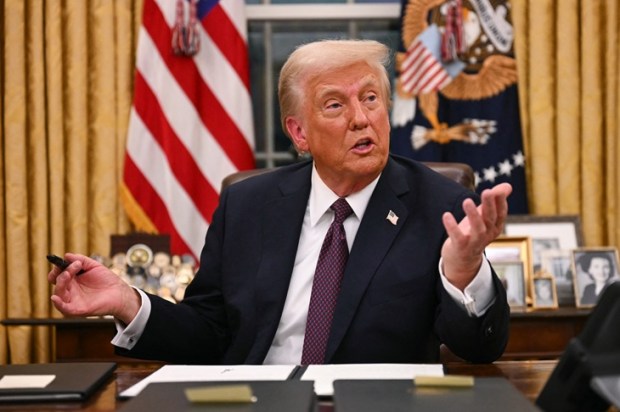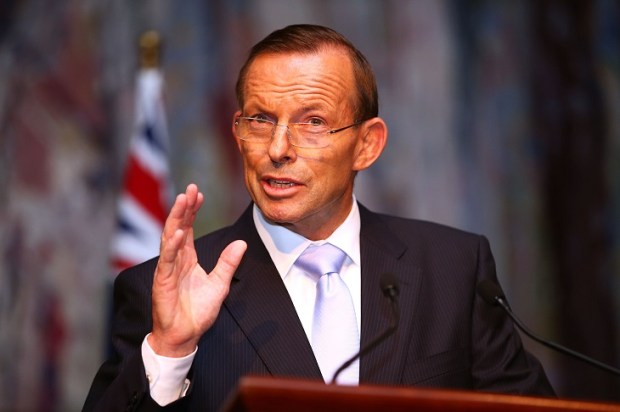Peter Dutton has said that Trump is wrong on Ukraine, while Tony Abbott has claimed that the US President is ‘living in fantasy land’.
In reality, what the US President is doing is both obvious and justified.
For decades, US presidents have complained that countries within the European Union have not spent enough on their own defence. Germany’s defence spending, for example, fell to just 1 per cent of GDP during the Obama years – half of Nato’s own 2 per cent benchmark. The United States contributes more than 70 per cent of Nato’s total military spending, even though the collective EU economy is roughly the same size as that of the US.
In 2023, the US spent $860 billion on defence, dwarfing the combined defence budgets of all European Nato allies.
Every US president – including Trump in his first term – failed to meaningfully shift the dial. One the first time around, Trump extracted marginally more spending from Nato members, but not nearly enough.
Now, Trump is using the Ukraine-Russia war as a vehicle to force the issue and compel Western countries to spend more on their own defence.
The strategy is clear: the US will design a peace deal with Russia that will be unacceptable to both Ukraine and European countries. However, it will still be a peace deal – one that the US is prepared to implement and enforce, and one that Russia promises to uphold.
Trump will anticipate that Ukraine and European countries will criticise and reject the proposal. This will be a deliberate design feature of his approach. But once Europe rejects it, then what?
At that point, the US will have a rationale to walk away, and Russia will resume fighting with even greater intensity – knowing that US interest in the war has faded and US funding has disappeared.
At this stage, European countries will face a genuine crisis. Few, if any, have the military capacity – or political will – to confront Russia on the battlefield without US support.
They all know this. That’s why Keir Starmer’s declaration that he is willing to deploy troops to Ukraine was, at best, half-hearted. He made his grand promise with one major caveat: he would only act with US backing.
This pattern mirrors Trump’s Gaza Plan – no country has explicitly endorsed his ‘Gaza Riviera’ development proposal, yet not one has stepped forward with a credible alternative for rebuilding.
Likewise, not one EU country will like Trump’s Ukraine peace deal, but not one will propose a realistic alternative.
There will be talk of forming a European army, but this idea will quickly vanish into thin air – buried under bureaucratic inertia and the financial reality of what such a project would require.
Trump is now preparing to impose a cost on Europe for its decades-long defence under-spending.
Nato countries will either have to spend a fortune building a European military capable of confronting Russia – or accept a peace agreement they despise. Either way, Europe will bear the burden.
Of course, there is also a deeper MAGA-driven motivation. Many within Trump’s base want the UK, German, and French politicians punished for embracing progressive policies, open borders, and ‘woke’ agendas. Against the wishes of their wider populations.
By forcing them to increase defence spending and perhaps even commit to a conflict against Russia, these countries will be forced to confront something real – war, without the security blanket of US military support.
There’s nothing like the prospect of war to focus a nation’s priorities, leaving little room for ideological distractions – such as jailing a Christian for praying 50 metres from an abortion clinic, or distributing government letters warning citizens that even private prayer in their own homes could violate abortion access laws.
Trump and the MAGA movement are not going to subsidise European defence while such ideological excesses continue unchecked.
Defence under-spending and ‘woke luxury’ are now being priced in.
Nick Hossack is a public policy consultant. He is former policy director at the Australian Bankers’ Association and former adviser to Prime Minister John Howard.

























